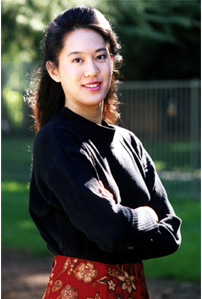
Rape of Nanking author Iris Chang was found dead Tuesday from an apparent self-inflicted gunshot the head, according to the San Jose Mercury News.
Enough said.

Rape of Nanking author Iris Chang was found dead Tuesday from an apparent self-inflicted gunshot the head, according to the San Jose Mercury News.
Enough said.
Editor in Chief Harry Mok wrote about growing up on a Chinese vegetable farm for the second issue of Hyphen and has been a volunteer editor since 2004. As a board member of the San Francisco and New York chapters of the Asian American Journalists Association, Harry has recruited and organized events for student members. He holds a master’s degree in journalism from the University of California, Berkeley, where he was also a graduate student instructor in the Asian American Studies Department.
Comments